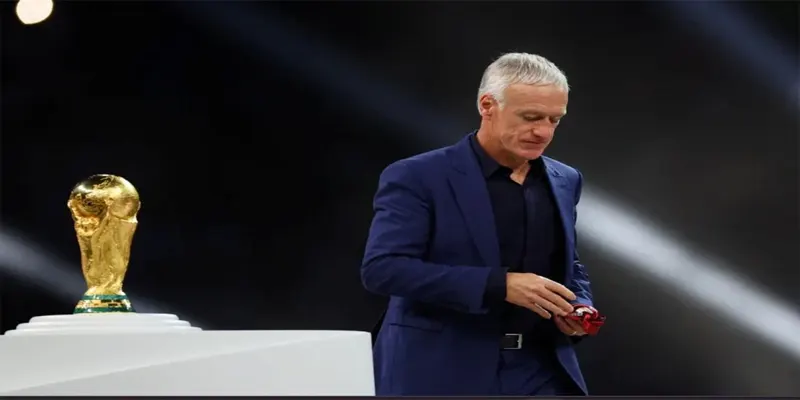
Didier Deschamps: Mastermind Behind France’s Football Rise
Didier Deschamps stands as a beacon of perseverance and football intelligence, turning every team he leads into a disciplined, cohesive unit. From his celebrated days on the pitch to his tactical mastery on the sidelines, he has guided France to World Cup glory while shaping players’ careers. Known for blending strategy with motivational leadership, Deschamps inspires fans and redefines modern coaching. Follow his journey of precision, passion, and leadership with insights from socolive trực tiếp, highlighting how he continues to influence French football and nurture rising talent.
Key Players Influenced by Didier Deschamps
Many talented players have thrived under Didier Deschamps’ guidance, benefiting from his emphasis on team cohesion and tactical discipline. Stars like Kylian Mbappé, Antoine Griezmann, and Paul Pogba have elevated their performances after periods of mentorship from Deschamps, gaining confidence and tactical awareness. His talent for identifying the potential in young players and integrating them into a cohesive system has been crucial in France’s recent successes on the international stage.
Moreover, Deschamps encourages a sense of responsibility and leadership among his players, often forming core groups of influential figures within the squad. His coaching has helped players develop resilience, tactical intelligence, and composure under pressure. These players, inspired and guided by Deschamps, have not only contributed individual brilliance to the French team but also exemplified his holistic approach to player development. His influence on their careers underlines his impact as a mentor and strategist in shaping world-class talent.
Didier Deschamps: A Legacy in French Football
Didier Deschamps’ legacy extends beyond just titles and victories; it embodies a philosophy of perseverance, adaptability, and leadership. His success bridges the gap between France’s glorious football history and its modern football identity, inspiring current and future generations. His role as both player and coach has positioned him as a central figure in French football history, often drawing comparisons to legendary compatriots who have shaped the sport’s landscape in France.
Beyond trophies, Deschamps’ legacy is reflected in the character and resilience of his teams, his tactical ingenuity, and his unwavering commitment to excellence. His leadership has redefined what it means to be a coach in international football, demonstrating the importance of mental strength, adaptability, and humility. As the architect of France’s recent football resurgence, his influence will resonate for decades, inspiring young coaches and players alike to pursue greatness with integrity and resilience.
Challenges Faced by Didier Deschamps as National Coach
Leading a national team like France comes with numerous challenges: managing egos, balancing experienced veterans with youthful talent, and maintaining a consistent winning mentality. Didier Deschamps faced doubts early in his tenure, especially after narrowly missing the 2014 World Cup and managing the transition of a squad built on stars. His ability to unify diverse personalities and reconcile individual ambitions with team goals was tested repeatedly, requiring persistent diplomacy and strategic clarity.
He also had to adapt to external pressures, such as media scrutiny and expectations for continued success. Additionally, international tournaments demand a delicate balance of tactical flexibility and mental resilience; managing injuries, form fluctuations, and team dynamics posed ongoing hurdles. Deschamps’ capacity to navigate these challenges through calm leadership, tactical innovation, and fostering team unity underscores his resilience and strategic finesse, making his victories even more commendable.
Didier Deschamps’ Impact on Young Talents
A significant aspect of Didier Deschamps’ coaching approach is his commitment to cultivating young talents and integrating them into the senior national team. His eye for spotting promising players and providing them with opportunities has rejuvenated the French team across different cycles. Players like Kylian Mbappé emerged under his guidance, benefiting from his support and tactical instructions that honed their skills and confidence on big stages.
Deschamps’ willingness to trust young players often creates a dynamic and energetic team atmosphere, essential for modern football’s demands. His mentorship cultivates not only skill development but also a sense of responsibility and leadership in young talents. The impact of his focus on youth development is evident in France’s sustained competitiveness and innovative style of play, securing his reputation as a coach who values growth and long-term success.
Analyzing Didier Deschamps’ Career Milestones
Didier Deschamps’ career is punctuated by notable milestones that highlight his evolution from a player to a football legend. As a player, he captained France to victory in the 1998 World Cup and Euro 2000, demonstrating resilience and leadership on the biggest stages. Transitioning into coaching, his tenure with various clubs and the French national team laid a foundation that enabled him to innovate and adapt seamlessly.
His crowning achievements include leading France to victory in the 2018 World Cup, becoming only the third individual to win the tournament as both a player and a manager. These milestones symbolize his understanding of the game and his exceptional ability to inspire and manage teams at the highest level. His career trajectory reflects steady growth, strategic acumen, and a relentless pursuit of excellence, rendering him one of the most respected figures in football history.
Didier Deschamps: From Player to Legendary Coach
Didier Deschamps’ transformation from a humble, disciplined player into a legendary coach exemplifies his deep understanding of the game. His playing career was marked by leadership qualities, tactical awareness, and resilience, qualities that transferred seamlessly into his coaching philosophy. His experience as a World Cup-winning captain provided invaluable insight, shaping his approach to team management and strategic planning.
Building on his playing foundation, Deschamps developed a coaching style that balances tactical discipline with emotional intelligence. His ability to maintain focus amidst pressure, adapt tactics in real-time, and foster team cohesion has contributed to his success. This seamless transition from player to coach underscores his dedication, strategic brilliance, and enduring impact on French and global football. His journey remains a testament to perseverance, lifelong learning, and leadership in the beautiful game.



